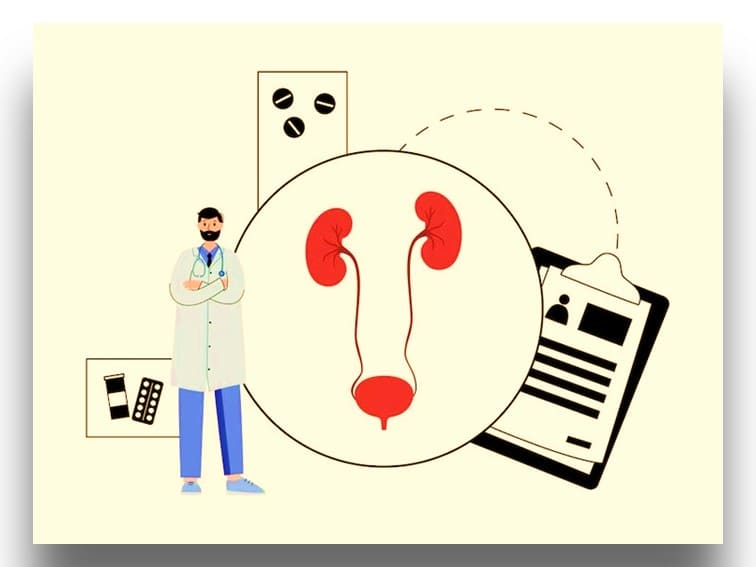Chronic kidney disease risk factors
Chronic Kidney disease is common in Asians, especially in India.
Diabetes and high blood pressure are the two major leading causes of chronic kidney disease in India and also in other parts of the world.
Many people are living a sedentary lifestyle with very little activity levels.
Hectic lifestyle, work-related stress, unhealthy eating, and sleeping habits are the factors that are leading to obesity.
The habit of popping pills to manage pain, stress, and sleep is also damaging the kidneys.
Chronic Kidney disease risk factors – Excess body weight
People who have gained excess body weight owing to their inherent tendency or unhealthy lifestyle can become prone to diabetes and high blood pressure.
Those who have heart disease and are taking medications to manage it should also pay attention to their kidneys’ health as they are at risk of developing chronic kidney disease. For instance, people living with congestive heart failure are at risk of developing chronic kidney disease.
Inherited kidney disorders, past damage to the kidneys, and older age are also risk factors for chronic kidney disease.
Your Family History is also a risk factor?
You are more likely to develop chronic kidney disease if any of your close relatives has kidney disease.
Diabetes and high blood pressure also run in families: If any member or a close relative in your family has diabetes or high blood pressure, you will be at risk for these diseases. The risk will be high if your parent, grandparent, or sibling has these conditions.
Meet your nephrologist to discuss more about your risk based on your family history – and also to know about the potential screening tests.
Your nephrologist will see whether you have any risk factors for kidney disease.
If you have:
- High Blood Pressure
- A family history of kidney disease
- Diabetes
- Advancing age
You must see your nephrologist for a comprehensive evaluation of your risk factors – and also for follow-up care.
What does your nephrologist do?
Your nephrologist will check your blood pressure and blood sugar levels. And orders the following tests:
- Urine test to find protein in urine
- Simple blood test for creatinine
- Glomerular filtration rate (GFR)
Learn more about Kidney Disease Screening -Why Is It Important
Bottom Line
Kidney disease is common nowadays. Anyone can develop chronic kidney disease because the risk factors are many – which most of us are not aware of. However, in some people, the chances of getting chronic kidney disease are high because of their excess body weight and propensity to develop diabetes and high blood pressure. These are the major chronic kidney disease risk factors. Therefore, if you think you are at risk, then talk to your nephrologist, without wasting any time.
Remember! Kidney Disease develops and progresses silently without causing any symptoms. In many cases, symptoms do not manifest until kidney disease gets worse. When symptoms start to manifest, they include tiredness, weakness, feeling less energetic, poor appetite, difficulty sleeping, itchy and dry skin, swollen feet and ankles, puffiness around your eyes, frequent urination – and so on.

Leave a Reply